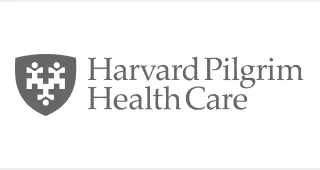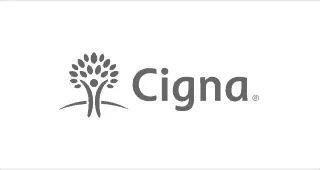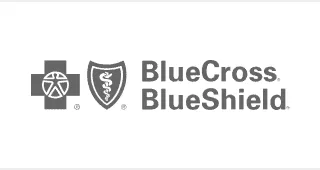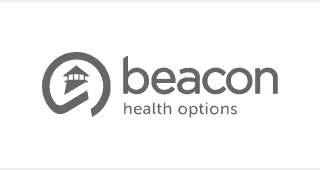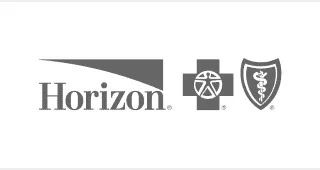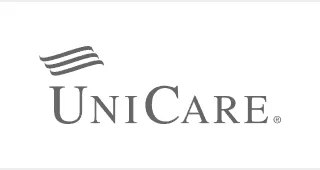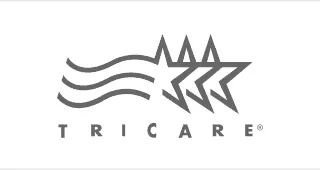Alcohol Addiction
Alcohol addiction, also known as alcoholism, alcohol use disorder, and alcohol dependence, is a medical condition characterized by the compulsive and uncontrollable consumption of alcohol. It is a complex disease that affects individuals physically, psychologically, and socially.
Individuals with alcohol addiction experience a strong craving for alcohol and struggle to control their drinking. They may continue to drink alcohol despite negative consequences, such as problems at work, deteriorating relationships, and health issues. Tolerance, where larger amounts of alcohol are needed to achieve the desired effect, is also a common characteristic.
Treatment for alcohol addiction typically involves a combination of behavioral treatment and approaches, including detox, counseling or talk therapy, support groups (such as alcoholics anonymous), and sometimes medication. Recovery from addiction is a lifelong process that requires ongoing commitment, support, and lifestyle changes.
If you or someone you know is struggling with alcohol addiction, it is important to seek professional help. Qualified healthcare providers and addiction specialists at Achieve Wellness and Recovery can provide the necessary support and guidance to help you overcome alcohol use disorder and stop drinking once and for all.
Factors That May Contribute to Alcohol Dependence
Alcohol use disorder is a complex medical condition influenced by a variety of factors. Genetic predisposition is one such factor, as individuals with a family history of alcoholism or problem drinking are at a higher risk of developing substance abuse and alcohol problems themselves. Biological factors also play a significant role. Neurochemical changes in the brain caused by repeated alcohol use can lead to physical and psychological dependence. Moreover, alterations in the brain’s reward system might make some individuals more susceptible to the effects of alcohol, as drinking interferes with the brain’s ability to send pleasure signals.
Additionally, the age at which a person starts to consume alcohol can impact their susceptibility to alcohol use disorder, with early initiation of alcohol use being associated with a higher risk. According to the National Institute on Alcohol Abuse and Alcoholism, young adults are particularly vulnerable to alcohol use disorder. Alcohol consumption during the developmental stage from preteens to mid-20s can have significant effects on brain development, increasing the likelihood of being diagnosed with alcohol use disorder later in life.
Environmental influences also play a significant role in the development of alcohol use disorder. For instance, growing up in an environment where alcohol use is prevalent or witnessing family members engaging in heavy drinking can increase the likelihood of developing alcohol use disorder. Family, friends, and societal influences can contribute to the patterns of drinking alcohol and increase the likelihood of developing alcohol problems.
Mental illness can also contribute to alcohol use disorder. Many individuals with mental health disorders, such as major depression, anxiety, or bipolar disorder, may turn to alcohol as a way to self-medicate or alleviate their symptoms. Similarly, individuals with personality traits such as impulsivity or high-stress levels might be more likely to misuse alcohol as well as those who have experienced traumatic events, such as physical or sexual abuse, may turn to alcohol as a coping mechanism.
Alcohol Abuse
Alcohol abuse refers to excessive and harmful alcohol use, leading to negative consequences for an individual’s physical and mental health. Signs and symptoms of alcohol abuse include loss of control over drinking, neglecting responsibilities, continued use despite negative consequences, binge drinking, and physical and behavioral changes such as blackouts and mood swings. It is important to address alcoholism as it can result in serious health problems, mental health issues, social and relationship problems, and legal and financial consequences. Seeking professional help and support from a treatment provider or health care professional is crucial for overcoming alcoholism and improving overall well-being.
Short & Long-Term Effects of Alcohol Abuse
Short-term effects of alcohol abuse and alcoholism can range from impaired judgment and risky behaviors like unsafe sex to physical symptoms like dizziness, nausea, and blackouts. Common short-term effects of alcohol misuse include:
- Impaired judgment and coordination
- Slurred speech and blurred vision
- Increased risk of accidents
- Nausea and vomiting
- Memory lapses and blackouts
Long-term misuse can lead to serious health complications like liver disease, heart disease, cancer, and neurological damage. It can increase the risk of mental health conditions like depression and anxiety. In addition, prolonged heavy drinking can lead to alcohol dependence. Common long-term effects of alcohol misuse include:
- Liver damage
- Cardiovascular problems
- Mental health disorders
- Damage to the digestive system
- Increased risk of cancer
Signs and Symptoms of Alcohol Use Disorder
There are several signs and symptoms associated with alcohol use disorder that can help individuals and family members identify the presence of the disorder. One common symptom is experiencing intense cravings for alcohol, often leading to a loss of control over drinking habits. People with alcohol use disorder may find it challenging to limit or stop drinking alcohol, even when they have a strong desire to do so.
Another indication of alcohol use disorder is the development of tolerance, which means needing to drink larger amounts of alcohol to achieve the desired effect or experiencing reduced effects with the same quantity. When individuals with alcohol use disorder reduce or stop their alcohol intake, they may experience withdrawal symptoms such as tremors, sweating, nausea, anxiety, irritability, insomnia, and in severe cases, seizures. These physical and psychological symptoms can be distressing and reinforce the need to continue drinking.
Individuals with alcohol use disorder often neglect their responsibilities in various areas of life, such as work, school, or personal relationships. Despite facing negative consequences, they continue to engage in risky behaviors while under the influence of alcohol. This pattern may result in legal issues, relationship problems, and even physical and mental health complications.
Additionally, those with alcohol use disorder may spend a significant amount of time obtaining alcohol, drinking, and recovering from its effects, which can interfere with their ability to participate in hobbies, social activities, and other interests they once enjoyed.
It is essential to recognize these signs and symptoms as potential indicators of alcohol use disorder. Seeking professional help from a healthcare provider, primary care doctor, or an addiction specialist is crucial for a proper diagnosis and the development of an individualized treatment plan. With the right support, individuals with an alcohol use disorder can learn to manage their alcohol use, stop drinking entirely, improve their quality of life, and reduce the risk of developing more serious mental or physical health complications.
Alcohol Addiction Treatment
Alcohol use disorder treatment refers to the range of interventions and therapies aimed at helping individuals overcome their dependence on alcohol and achieve lasting recovery. It is a comprehensive approach that addresses the physical, psychological, and social aspects of alcohol addiction. During alcohol and drug abuse treatment, clients engage in evidence-based therapies, including talk therapy, such as individual counseling, group therapy, and family therapy, as well as:
- Behavioral treatments/behavioral therapies
- Support groups (i.e., alcoholics anonymous)
- Addiction medicine
- Marital and family counseling
- Human services
- 12 step facilitation
- Relapse prevention education
- Educational workshops
These therapeutic approaches aim to treat alcohol dependence by addressing the underlying causes of addiction, developing healthy coping mechanisms, and promoting personal growth and self-awareness. The goal of alcohol use disorder treatment is to help individuals with alcohol problems safely detox from alcohol, manage withdrawal symptoms, and address the underlying factors that contribute to their addictive behavior.
At Achieve Wellness and Recovery, we offer comprehensive alcohol addiction treatment programs designed to treat alcohol abuse and alcoholism. Treatment at our rehab begins with a thorough assessment to understand the specific challenges and underlying factors contributing to alcohol addiction. Based on this assessment, our experienced team of addiction specialists and health professionals develop a personalized treatment plan that addresses the physical, emotional, and psychological aspects of alcohol use disorders. If you or a loved one are ready to stop drinking and seek treatment for an alcohol use disorder, contact us today by calling (833) 680-0142.
Alcohol Detox
Alcohol detox refers to the process of eliminating alcohol from the body and managing the associated symptoms that occur when someone abruptly stops or reduces their alcohol intake after a period of heavy or prolonged alcohol use. It is often the primary treatment of alcohol use disorder and is essential for ensuring a safe and successful recovery.
During alcohol detox, the body goes through a period of adjustment as it adapts to functioning without alcohol. This can result in various physical and psychological symptoms of withdrawal, which can range from mild to severe, depending on the individual’s level of alcohol dependence.
Based on the assessment at our rehab facility, if detox is deemed the appropriate first step in the addiction treatment process, we will facilitate a supervised detox with a partner healthcare provider to ensure a safe and comfortable withdrawal from alcohol. This phase is closely monitored by treatment professionals to manage symptoms and minimize any potential complications.
Alcohol Withdrawal
Alcohol withdrawal refers to the set of physical and psychological symptoms that occur when an alcohol-dependent person abruptly stops or significantly reduces their alcohol use. It is a common and expected response of the body as it adjusts to the absence of alcohol or reduced drinking behavior.
The severity and duration of symptoms can vary widely depending on factors such as the amount and duration of the problem drinking, individual health, and previous withdrawal experiences. Symptoms usually begin within hours to a few days after you stop drinking and may peak in intensity within the first 48 to 72 hours.
Common physical symptoms of withdrawal include tremors (shakes), sweating, rapid heartbeat, nausea or vomiting, headache, insomnia, and sensitivity to light and sound. Psychological symptoms can include anxiety, irritability, restlessness, depression, mood swings, difficulty concentrating, and cravings for alcohol.
Alcohol Detox Timeline
The alcohol detox timeline can vary from person to person, depending on factors such as the severity of alcohol use disorder and individual health. While it’s important to note that everyone’s experience may differ, the following is a general timeline that highlights the stages of alcohol detoxification:
- 6-12 hours: Symptoms of withdrawal may begin within 6-12 hours after the last drink. These initial symptoms can include anxiety, restlessness, insomnia, nausea, and tremors.
- 24-48 hours: The second day of detox is typically characterized by an escalation of symptoms of withdrawal. Symptoms may intensify, and individuals may experience increased anxiety, irritability, sweating, rapid heartbeat, and fluctuations in blood pressure.
- 72 hours: The third day is often considered the peak of withdrawal symptoms. Symptoms can be most severe during this time and may include hallucinations, confusion, seizures, and delirium tremens (DTs) for individuals with severe alcohol problems. It’s important to seek medical attention if experiencing severe symptoms.
- 5-7 days: By this stage, the intensity of withdrawal symptoms usually begins to subside. Physical symptoms such as tremors and nausea may improve, although psychological symptoms like anxiety and depression may persist.
- 1-2 weeks: Within one to two weeks, most physical symptoms of withdrawal subside. However, some individuals may continue to experience psychological symptoms, including mood swings, irritability, and cravings.
Alcohol Detox Medications: MAT
Medication-assisted treatment (MAT) is an approach used to treat alcohol dependence that helps individuals overcome withdrawal symptoms and manage cravings during the early stages of recovery. There are several medications approved by the Food and Drug Administration (FDA) that can be used to treat alcohol use disorder and co-occurring mental health issues.
One commonly used medication is naltrexone, which can help reduce alcohol cravings and block the pleasurable effects of alcohol use if a relapse occurs. Naltrexone is available in both oral and injectable forms, offering flexibility in treatment options. Acamprosate is another medication that can be beneficial during alcohol detox. It helps restore the brain’s chemical balance, reducing the unpleasant symptoms associated with alcohol withdrawal and supporting long-term abstinence. Additionally, disulfiram, often referred to as Antabuse, is prescribed to individuals who want to stop drinking by creating adverse reactions if alcohol is consumed, discouraging relapse.
As per the findings of the National Institute on Alcohol Abuse and Alcoholism, as well as our treatment center, behavioral therapies, medications, or a combination of both are effective in helping individuals navigate and overcome the challenges of alcohol use disorder.
Achieve Wellness and Recovery: Rehab for Alcohol Addiction
Treatment for alcohol abuse is an essential part of an individual’s journey to sobriety. Don’t wait any longer. If you are looking for rehab for alcohol in NJ, let us help. Contact Achieve Wellness and Recovery today to learn about our alcohol and drug rehab programs. Let our addiction treatment services assist you in your recovery process. Receive the hope you’re looking for at our substance abuse treatment center.
We work with most insurance companies. Please note we are not affiliated with or endorsed by insurance companies.
No Medicaid Accepted.




